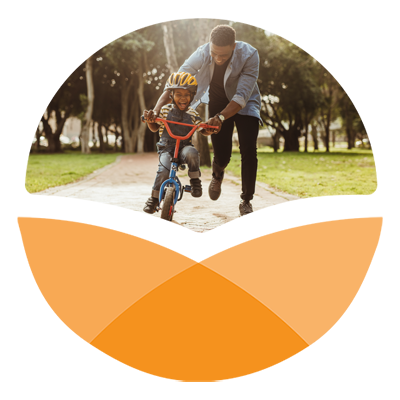
HOPE Train the Facilitator Certification
Spread HOPE in your community
We would love to have you as the newest HOPE Facilitator who helps to bring HOPE to your community! After completing the Train the Facilitator Certification program, you will be able to deliver the Introduction to HOPE workshop out in the community. You will be a driver in spreading the core concepts of the HOPE framework with key partners, community members, and staff.
What you will learn
At the end of the Train the Facilitator Certification program, you will be certified to provide your version of the Introduction to HOPE workshop tailored specifically to your community and sector
Hear from HOPE Facilitators
Are you ready to become a Facilitator?
To be eligible for the Train the Facilitator Certification program, we ask that you:
- Be a seasoned trainer with experience providing trainings or workshops;
- Have participated in an live Introduction to HOPE workshop, completed the Spreading HOPE online course, or be willing to complete the online course prior to program launch date. Note: registration for the Train the Facilitator program comes with complimentary access to the online course.
Each cohort will consist of 10-16 individuals working around the country in different sectors who want to Spread HOPE. Together, you’ll complete three virtual, interactive, hands-on sessions over the course of 4-6 weeks and end the program with a new HOPE certification. The program consists of three sessions each about two weeks apart with homework in between each session. The first session will be approximately 3 hours long. The following two sessions will each be 90 minutes and offer reflection and group sharing about the homework assignments.
The Train the Facilitator program costs $1,200 per person. Once completed, you will be certified to offer the Introduction to HOPE workshop and charge up to $1,500 per workshop. Certification also comes with the option of being listed on our website as a Facilitator for those looking for local trainers.
There are a limited number of scholarships available on a first come, first served basis for each Train the Facilitator cohort. If you are either self-employed or working for an organization with an annual operating budget under $250,000 without a staff development budget, please reach out to us for more details.
The Facilitator Certification is valid for one year. To maintain your certification and have access to ongoing support, resources, and office hours, we do ask all Facilitators to recertify each year. This involves reviewing new material that has been added in the past 12 months, tracking your Introduction to HOPE workshops on a shared drive, submitting evaluations, and submitting a $150 recertification fee.
Register for the next cohort
Each Train the Facilitator cohort will consist of 10-16 individuals and will complete three interactive, hands-on sessions over the course of 4-6 weeks.



